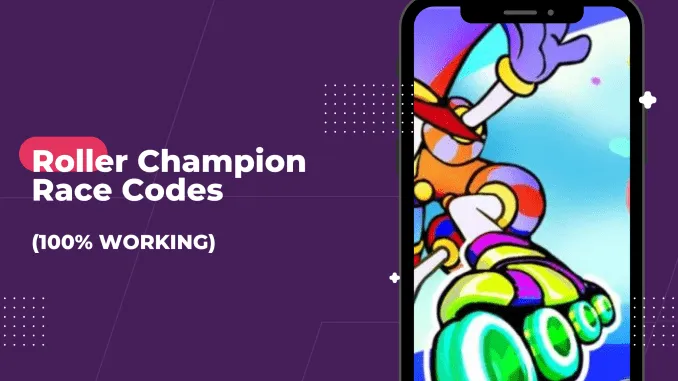In recent years, online gaming has become a ubiquitous part of modern life, engaging millions of players worldwide across various age groups. While gaming is often associated with negative stereotypes, such as promoting violence or addiction, research and personal experiences increasingly highlight the potential mental health benefits of online games. This article explores how online gaming can positively impact mental health, offering players various cognitive, emotional, and social benefits.
1. Cognitive Benefits of Online Gaming
Online games, particularly those that require strategic thinking, problem-solving, and quick decision-making, can enhance cognitive skills in players. These games often involve complex tasks that challenge the brain, helping to improve various cognitive functions.
- Improved Problem-Solving Skills: Many online games require players to solve puzzles, navigate obstacles, or develop strategies to achieve specific goals. This can improve players' problem-solving abilities and encourage creative thinking.
- Enhanced Memory and Concentration: Games that require players to remember patterns, track multiple elements, or pay attention to details can enhance memory and concentration. For instance, games like "Portal" or "The Legend of Zelda" series involve intricate puzzles that demand players to retain information and focus on solving challenges.
- Faster Reaction Times: Action games often require quick reflexes and fast decision-making. Studies have shown that regular gamers can develop faster reaction times and improve hand-eye coordination, which can be beneficial in real-life situations.
2. Emotional Benefits and Stress Relief
Playing online games can also offer emotional benefits, providing a source of relaxation and stress relief. For many players, gaming serves as a healthy way to unwind and escape the stresses of daily life.
- Stress Reduction: Engaging in immersive gaming experiences can provide a mental break from everyday stressors. Games that offer a sense of achievement or progress can also boost mood and reduce anxiety.
- Emotional Resilience: Some games involve overcoming difficult challenges or adversities, which can help players develop emotional resilience. Successfully navigating these challenges in a game can provide a sense of accomplishment and boost self-esteem.
- Expression of Emotions: Online games, particularly those with narrative elements, allow players to explore and express emotions in a safe environment. This can be particularly beneficial for individuals who may find it difficult to express emotions in real life.
3. Social Connections and Community Building
One of the most significant aspects of online gaming is its ability to connect people from around the world, fostering social interaction and community building. This aspect of gaming can be particularly valuable for mental health, providing social support and a sense of belonging.
- Building Friendships: Many online games, especially multiplayer and massively multiplayer online (MMO) games, provide opportunities to make new friends and connect with others who share similar interests. This can be especially beneficial for individuals who may feel isolated or have difficulty making friends in traditional social settings.
- Collaboration and Teamwork: Online games often require players to work together to achieve common goals. This collaborative aspect can help players develop teamwork skills and learn the value of cooperation and communication.
- Supportive Communities: Many gaming communities offer support and understanding, creating a space where players can share experiences and discuss challenges. These communities can provide a valuable source of emotional support and encouragement.
4. Therapeutic Uses of Online Gaming
Online gaming is increasingly being recognized for its therapeutic potential in treating various mental health conditions. Therapeutic video games, also known as "serious games," are designed specifically to address psychological issues and support mental health treatment.
- Anxiety and Depression: Some games are designed to help players manage symptoms of anxiety and depression. These games often include elements that promote relaxation, mindfulness, and positive thinking. For example, games like "SPARX" have been developed to teach cognitive-behavioral therapy (CBT) techniques to players in an engaging way.
- Cognitive Rehabilitation: For individuals recovering from neurological conditions or injuries, certain games can be used in cognitive rehabilitation to improve memory, attention, and executive function. Games that require strategic planning, memory recall, and multitasking can be particularly beneficial.
- Autism Spectrum Disorder (ASD): Online games can also be used as tools to support individuals with ASD, helping them develop social skills and practice communication in a controlled environment. Games that involve role-playing or social interaction can provide a safe space for players to experiment with different social scenarios.
5. Moderation and Responsible Gaming
While online gaming offers many benefits, it is essential to approach it with moderation and awareness of potential risks. Excessive gaming can lead to negative outcomes, such as addiction, social isolation, and physical health issues.
- Setting Limits: It's important for players to set boundaries on the amount of time spent gaming and to ensure that it does not interfere with other aspects of life, such as work, studies, and relationships.
- Balancing Gaming with Other Activities: Encouraging a balanced lifestyle that includes physical activity, social interaction, and other hobbies can help prevent the negative effects of excessive gaming.
- Seeking Help When Needed: If gaming begins to negatively impact a person's life, seeking professional help from a mental health provider can be beneficial. Many organizations offer resources and support for individuals struggling with gaming addiction.
6. The Future of Online Gaming and Mental Health
As technology continues to advance, the potential for online gaming to positively impact mental health is likely to grow. Innovations such as virtual reality (VR) and augmented reality (AR) are creating new opportunities for immersive and therapeutic gaming experiences.
- Virtual Reality Therapy: VR offers a unique way to create immersive environments that can be used in therapeutic settings. VR therapy is being explored for treating conditions such as PTSD, anxiety disorders, and phobias.
- Gamification of Mental Health Tools: The principles of gaming are being applied to develop engaging mental health tools and apps. These gamified tools can make mental health interventions more accessible and appealing to a broader audience.
- Research and Development: Ongoing research into the psychological effects of gaming is crucial for understanding how to maximize the benefits and minimize the risks. Collaboration between game developers, psychologists, and researchers can lead to the creation of games that support mental well-being.
Conclusion
Online gaming, often misunderstood and criticized, has numerous positive impacts on mental health. From enhancing cognitive skills and providing stress relief to fostering social connections and offering therapeutic benefits, games can play a valuable role in supporting mental well-being. As with any activity, moderation and responsible use are key to ensuring that the benefits of online gaming are maximized while minimizing potential risks. As technology and our understanding of psychology continue to evolve, the potential for online games to contribute positively to mental health will likely expand, offering new and innovative ways to support individuals in their mental health journeys.








